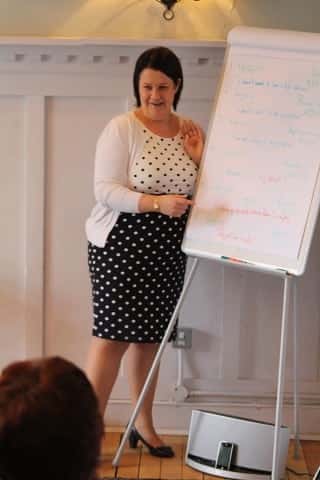How do you manage your energy levels?
I was talking to a client this week where managing our energy levels came up. We all suffer physical fatigue at some point – the weeks we overdo it and  crash into bed each night and can’t get out of bed the next day. I use the analogy of a bank account – if we make too many withdrawals and not enough deposits we will soon be running on empty.
crash into bed each night and can’t get out of bed the next day. I use the analogy of a bank account – if we make too many withdrawals and not enough deposits we will soon be running on empty.
There was a time when I used to run on empty constantly in a corporate Human Resources role where I covered two-thirds of the UK – I was on the go from the early hours to late at night in order to deliver the service I felt was required. I often travelled on a Sunday ready for Monday and got home late at night (but I used to think, at least I’m home in my own bed). I was away 3 night a week regularly and drove thousands of miles in the car. I constantly asked my body for more – and it gave me more. I was carrying a lot of weight at that time, and hadn’t realised how that in itself was tiring (compared to now, I was 4 stone heavier – so I was constantly carrying around the additional weight equivalent to a 7-year-old child – permanently! – click here if you want to know how I shifted the weight with NLP).
Identifying things that zap our energy …
Now, let’s put physical fatigue to one side for a moment, and let’s look at this from a slightly different angle. Sometimes the level of energy we think we have/experience is actually more of a mind thing that we might at first realise ….
We can all probably recognise that there are situations, conditions, things, tasks, thought processes, people etc that zap our energy. Take a moment to write down what zaps your energy. Our energy can be zapped at any point of the day (we even get the feeling of tiredness when we’re not tired!). Then consider if moving forward to can prevent/avoid/reduce what zaps your energy.
What are the things that energise you ….
On the flip side, take time to identify conditions, situations, people, tasks, etc which energise you. Write these down. Now you know what/who they are, make these your go to people, tasks, and things when you need energy. Now consider if you could do/have more of these? When you’re feeling tired, can you do, being with or utilise this list of your ‘energisers’? (remember they will be different for different people, however, think about it for a moment, we all unconsciously do stuff that gives is a ‘second’ wind – so this is about doing this more consciously/being more strategic).
Bringing the great outdoors indoors can help with energy levels, the team at Pulbrook And Gould know a thing or two about biophilia, “plants are known for being great mood boosters and de-stressers. According to a 2010 study, bringing plants into an office was able to reduce feelings of tension and anxiety by around 37%, depression by 58%, anger by 44%, and fatigue by 38%”.
How does NLP help us manage our energy levels?
It really does depend on what your challenge is. If losing weight would help, NLP can help. If it’s internal mind chatter that’s causing you not to sleep or simply depleting energy levels NLP has good news here too. If during the day as you consciously or unconsciously battling with the conflicts in your mind or dilemmas in decision making that you might mull over for part or the whole of the day, NLP can help with that too. If you’re procrastinating, we have an anchoring process that helps here too so you can easily move to motivation. If it’s that you’re attracted to the wrong people, we can look at your relationship values and realign them for you (if your values are unaligned, given values are what motivates you, this has a big impact and mean you are wasting energy on things that aren’t really helping you). We have a breathing technique that can help calm or energise you. If it’s other elements about how you go about doing things, the well-trodden patterns of behaviour or  ‘habits’ where after you’ve done something, you stand back and say to yourself, ‘why did you do that, AGAIN!” NLP provides tools to change your strategies (the processes or steps you run in your head that always give a specific outcome – regardless of it’s an outcome you want or simply a waste of energy!)
‘habits’ where after you’ve done something, you stand back and say to yourself, ‘why did you do that, AGAIN!” NLP provides tools to change your strategies (the processes or steps you run in your head that always give a specific outcome – regardless of it’s an outcome you want or simply a waste of energy!)
The question then is how badly do you want to change the patterns of behaviour or thinking so that you can give yourself more energy?
Many people know the value of personal development, and at its heart it’s all about raising awareness and giving you the tool, techniques, and ways of thinking so that you can get out your own way. If you really want to enjoy life, achieve the things you want to achieve and ultimately unleash your potential then studying NLP is something that you should consider if you’ve not done so already. On the other hand, maybe you’ve already started your NLP Journey and are ready to take the next step to an even deeper understanding by perhaps becoming a Master Practitioner, Master Coach or Trainer?
Our NLP courses are fantastic personal development, they’re fun courses, energising and inspiring – feel free to contact us if you’d like to know more …
Written by Laura Evans – Self Improvement & NLP Expert helping Coaches and Professionals to unleash their potential in business and life with high-quality NLP Training, learn more about Laura and her training at the Unleash Your Potential website.


